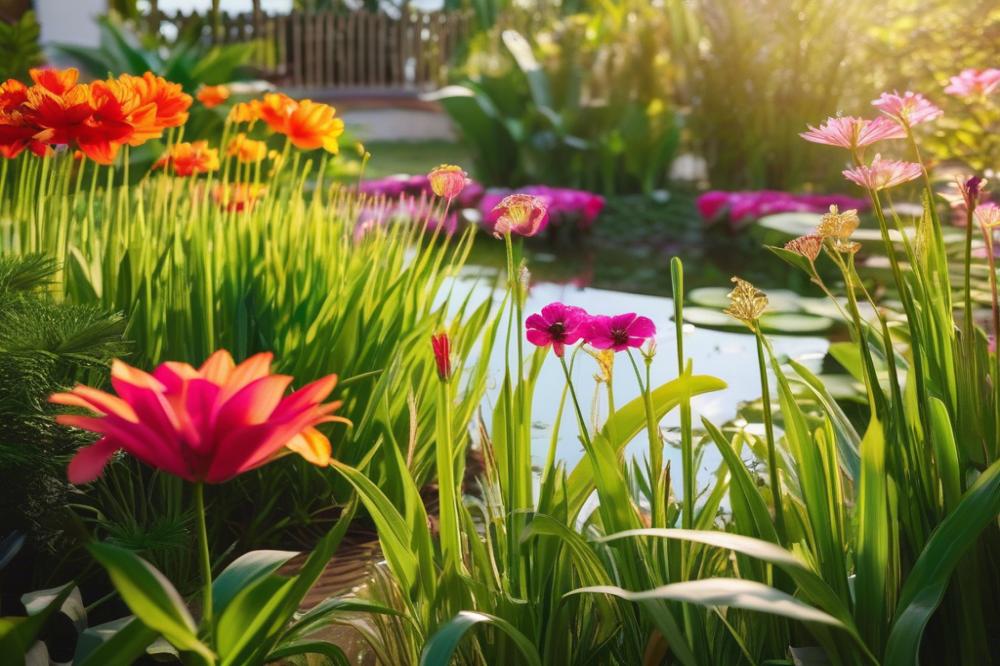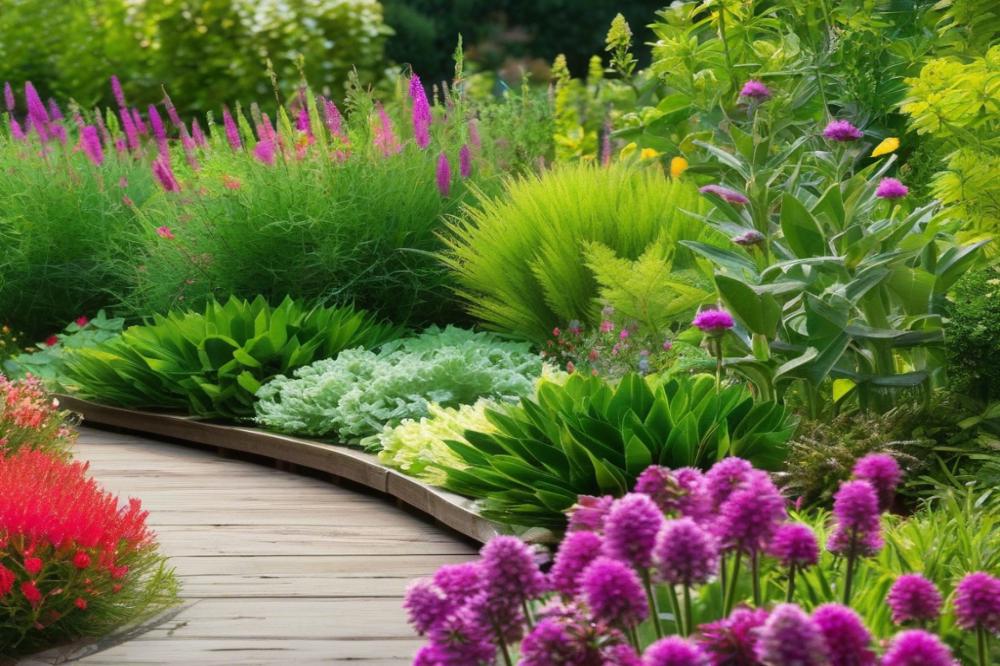Unlocking the Power of Rice Water
In recent years, many people have shown a growing interest in organic gardening and sustainable practices. This shift reflects a desire to connect with nature while caring for our planet. As folks seek healthier, eco-friendly gardening methods, they discover a variety of natural options to enhance their gardening efforts.
One such option is rice water, which can be used effectively as a natural fertilizer and pest repellent. Most of us toss away the water after rinsing rice, but this simple act could be a powerful tool in plant care. Rich in nutrients such as vitamins, minerals, and amino acids, rice water offers numerous rice water benefits for your green friends.
Using this homemade fertilizer on your plants helps promote healthy growth. It enhances soil quality and provides essential plant nutrients that keep your garden thriving. Beyond that, rice water can also serve as an excellent pest control strategy. By incorporating this solution into your regular gardening tips, you can nurture your garden while taking a stand against harmful insects.
Choosing rice water for your gardening needs not only supports sustainable gardening but also makes it easy to care for your plants naturally. It’s a small step with a big impact, bridging the gap between nurturing your garden and protecting the environment.
What is Rice Water?


Rice water is the starchy liquid left over after washing or cooking rice. It’s packed with various nutrients that can benefit plants. Making it is simple and doesn’t require many ingredients. Just save the water you use when rinsing rice. Alternatively, you can boil rice in extra water, and use that liquid once it cools.
The composition of rice water includes essential nutrients such as nitrogen, phosphorus, and potassium. These nutrients are vital for plant growth and health. Additionally, it contains some vitamins and minerals that help in plant care. When using it as a natural fertilizer, your plants can absorb these nutrients easily, giving them a boost.
Historically, rice water has been used in agriculture and gardening for centuries. Many Asian cultures have recognized its value in promoting healthy plants. Farmers used rice water to nourish crops and manage pests naturally. This practice showcases a rich tradition of eco-friendly gardening that aligns with sustainable gardening practices. Today, more people are turning to rice water benefits as part of organic gardening strategies.
This homemade fertilizer serves multiple purposes. It can nourish young plants or even act as a pest control solution. Using rice water provides a convenient way to recycle kitchen waste while enhancing your garden. Take advantage of this simple yet effective resource. The joy of seeing your plants thrive is just a splash of rice water away!
rice water fertilizer: Benefits for Plants


Rice water is more than just a cooking byproduct; it’s a powerful tool for plant care. This simple liquid contains essential nutrients that promote healthy growth in your garden. Key components like nitrogen, phosphorus, and potassium work in harmony to nourish your plants. Each nutrient plays a role in plant development, from root formation to flower blooming. Using rice water benefits your plants in numerous ways.
As a natural fertilizer, rice water enhances the nutrient supply in the soil. When you pour it onto your plants, it provides them with vital plant nutrients that stimulate growth. It encourages the growth of strong roots, resulting in healthier plants that can withstand pests and diseases. The amino acids present in rice water also support overall plant health, making it a must-have in your organic gardening toolkit.
Rice water also makes a significant impact on soil health and structure. This homemade fertilizer aids in retaining moisture and improves soil aeration. Healthier soil leads to better drainage and can reduce the chances of overwatering. By incorporating rice water, you engage in sustainable gardening practices that benefit the environment. In return, your plants thrive. It’s an eco-friendly gardening solution that promotes a rich and diverse soil ecosystem, vital for robust plant life.
Gardening tips often include using what you have at home. Choosing rice water as part of your gardening routine turns waste into a resource. Not only does it foster strong plants, but it also supports pest control by creating a balanced environment in your garden. Embrace the rice water benefits, and watch your garden flourish!
How to Make Rice Water


Creating rice water is simple and effective. This process serves as a natural fertilizer option for your plants. You can choose different ways to prepare it, primarily soaking and boiling the rice. Each method has its own benefits, and both are easy to do.
Soaking Method
Start with any type of rice you have at home. Measure about one cup of rice and place it in a bowl. Add about two cups of clean water to the bowl. Give it a gentle stir, then let it sit for about 30 minutes. After soaking, strain the water into a clean container. This method helps retain more nutrients because you avoid high heat. The final liquid should look milky and slightly cloudy; that’s a sign of nutrient richness. This water is now ready for your plants!
Boiling Method
If you prefer boiling rice, that’s fine too! Begin by cooking one cup of rice with around four cups of water. Once the rice is cooked, strain the water into a separate container. Let it cool down before using. This method forces more nutrients to leach into the water, making it beneficial, although some may fade in high heat. Regardless, this homemade fertilizer can still work wonders for your garden.
Maximizing Nutrient Retention
To maximize the rice water benefits, consider a few tips. Use organic rice whenever possible as it is likely to contain more nutrients. Also, avoid rinsing the rice before soaking if you want to keep as many nutrients as you can. Keep your rice water in a cool place to preserve quality. Adding a bit of molasses can enhance its nutrient profile further. Experiment with various mixtures for the best results in your plant care routine.
Both methods contribute to sustainable gardening practices. Rice water can nourish your plants and offer pest control, all while being eco-friendly. Creating this homemade solution not only saves money but also supports your organic gardening ventures. Incorporating this natural fertilizer into your routine can really transform your gardening experience.
Using Rice Water as a Natural Fertilizer


Applying rice water to your plants can make a noticeable difference in their growth and health. To start, you should collect the water leftover from rinsing your rice. This water is rich in plant nutrients like nitrogen, phosphorus, and potassium, making it a fantastic addition to your plant care routine.
Timing is important when using this natural fertilizer. You should apply rice water during the growing season when plants need more nutrients. Consider using it every two weeks to help them flourish. You can also water your plants with it when they appear stressed or lack vigor. Always check your plants to see how they respond—some may enjoy more frequent applications than others.
Dilution plays a crucial role in how effective rice water can be. Mix one part rice water with two parts fresh water before use. This dilution helps prevent over-fertilization, which can be harmful. When you stick to this guideline, you promote a healthy environment for your plants.
There are clear differences between homemade fertilizer and store-bought options. Store-bought fertilizers may have chemicals that can harm the environment. In contrast, rice water benefits your garden sustainably and is completely eco-friendly. It supports organic gardening practices, making it perfect for those who care about the planet.
Incorporating rice water into your gardening tips not only enhances growth but also aids in pest control. With such a simple and effective method, you’re contributing to sustainable gardening while caring for your plants. Enjoy watching your garden thrive with this easy solution!
Pest Control with Rice Water
Pest control can be a significant challenge for any gardener. Fortunately, rice water offers a simple yet effective solution. When you rinse rice before cooking, the starchy liquid that remains holds a treasure trove of rice water benefits. This natural fertilizer not only nourishes plants but also repels pests.
Many gardeners have discovered that rice water helps ward off unwanted visitors like aphids and spider mites. It creates an environment that is less welcoming to these pests. By applying it regularly, you can protect your plants while providing essential plant nutrients.
Effective Methods of Application for Pest Control
Applying rice water as a pest repellent is easy. Start by collecting leftover rice water after cooking your meal. Allow the liquid to cool completely to avoid harming the plants. Once cooled, you can pour it directly at the base of your plants or use a spray bottle for more precise application.
Some gardeners prefer to mix rice water with other natural ingredients for added effectiveness. Mixing in a few drops of soap can enhance its ability to stick to leaves, offering better protection against pests. This homemade fertilizer treats both the plants and the soil, keeping it healthy and vibrant.
Studies and Anecdotes Supporting Effectiveness
A study conducted by agricultural researchers found that rice water significantly reduced aphid populations in treated plants. Gardeners reported that their plants thrived when regularly watered with this simple solution. Some shared personal success stories, noting that they no longer needed harsh chemical sprays.
Another account from an organic gardening enthusiast described using rice water to fight off spider mites effectively. After switching to this eco-friendly gardening technique, the number of pests decreased dramatically. Not only did the plants look healthier, but they also flourished with a vibrant, green glow.
Many gardening tips focus on sustainable gardening practices. Using rice water fits perfectly into this trend. It’s easy, it’s cheap, and it enhances plant care while being safe for the environment. Choosing such methods demonstrates a commitment to eco-friendly gardening.
Additional Gardening Tips for Using Rice Water
Integrating rice water into your plant care routine is simple and effective. Use it as a regular part of your watering schedule. Plants thrive on the nutrients released into the water during rinsing. Diluting rice water with plain water can help prevent over-fertilization and ensure plants receive balanced nourishment.
Mix homemade fertilizer with rice water for enhanced plant nutrients. Combine ingredients like kitchen scraps or compost with the rice wash. This mix will supercharge your garden’s health. Consider feeding your plants with this blend every two weeks. You’ll see stronger growth and a boost in overall vitality.
Exploring complementary organic gardening practices can yield remarkable results. Companion planting is a strategic way to enhance your gardening success. Pairing certain plants together helps deter pests naturally. For example, marigolds work well near vegetables. They can repel harmful pests and provide vibrant colors to your garden.
Utilize rice water benefits alongside conventional watering methods. It’s also a great idea to use it after rain. This way, your plants get an extra boost without over-saturating the soil. Monitor your plants carefully. Adjust the frequency of your rice water application based on their reactions.
Think about your plant pairings carefully. Basil and tomatoes are excellent companions. They thrive when planted together and benefit from occasional rice water applications. Additionally, leafy greens, like spinach and lettuce, will respond positively. Using rice water on these plants can lead to increased yields.
Remember to store rice water properly. Keep it in a cool place to prevent souring. If it smells off, discard it. Always prioritize healthy practices in your eco-friendly gardening journey. With these gardening tips, you can cultivate a flourishing space that is both sustainable and rewarding.
Final Thoughts on Rice Water
Rice water has proven itself to be an effective natural fertilizer and pest repellent. It is rich in nutrients, which can help your plants grow strong and healthy. By using this simple byproduct of cooking, you’re not only providing a boost to your plants but also reducing waste.
Engaging in eco-friendly gardening practices can make a difference for our environment. Many chemical fertilizers can harm local ecosystems. Choosing organic alternatives like rice water shows a commitment to sustainable gardening. Living in harmony with nature benefits both gardeners and the planet.
Why not give rice water a try? It offers an easy way to enhance plant care routines without harmful chemicals. Just remember, each time you cook rice, you can nourish your garden and protect it from unwanted pests. Incorporating this method into your gardening efforts not only promotes growth but also fosters a healthier ecosystem.



